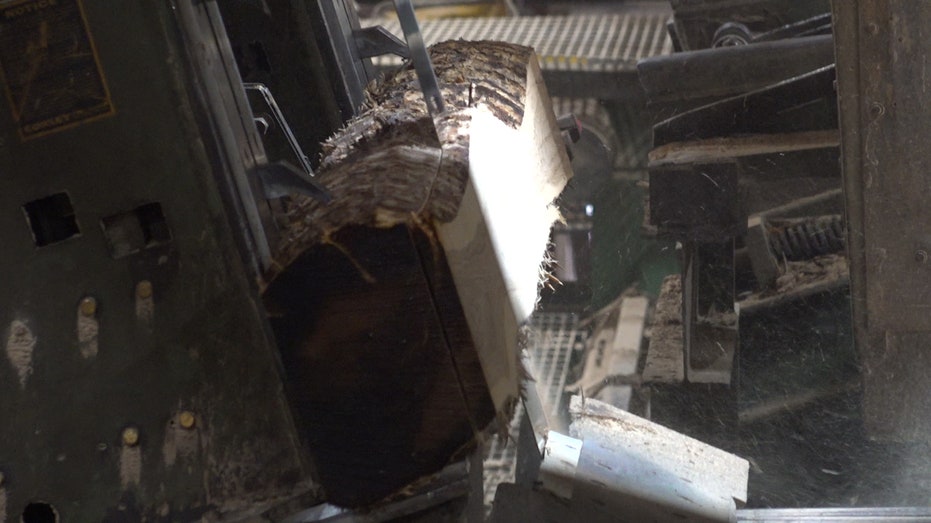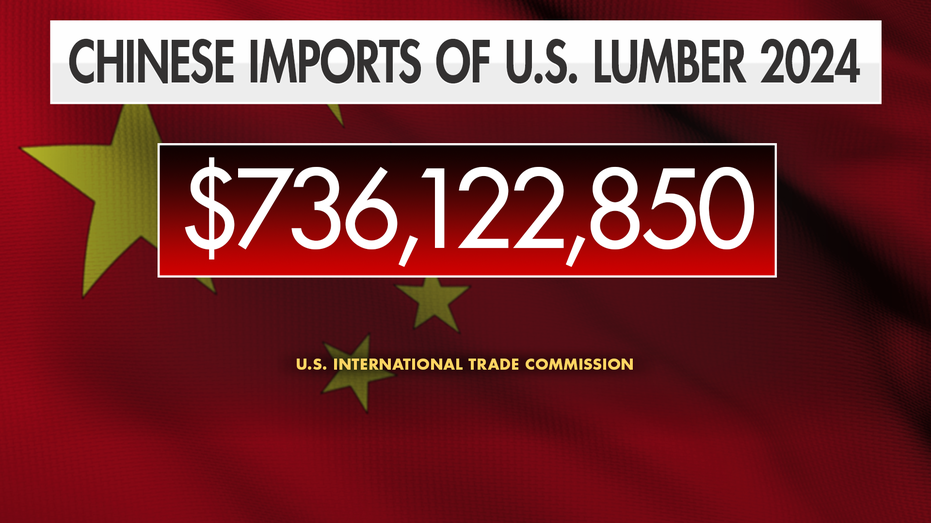

US trade faces pressure in Middle Eastern markets amid recent Israel-Iran conflict and Trump tariffs
SOUTH PITTSBURG, Tenn. – Some U.S. manufacturers have raised concerns that conflict in the Middle East could dry up their business in the region.
Recent missile attacks and the breach of a ceasefire agreement between Israel and Iran put global trade on alert as the Baltic and International Maritime Council warned the Strait of Hormuz and the Persian Gulf could face disruption.
"Before the US attack, the impact on shipping patterns was limited. Now, after the U.S. attack, we have indications that the number of ships passing is reducing. If we begin to see Iranian attacks on shipping, it will most likely further reduce the number of ships transiting through the Strait of Hormuz," Jakob Larsen, BIMCO Chief Safety & Security Officer, said.
According to BIMCO, approximately one third of seaborn crude oil and 15% of refined oil products pass through the Strait of Hormuz.

A U.S. sawmill owner says his business is struggling to make pre-tariff profits as President Trump's pondering future tariffs on timber imports scares foreign buyers away. (Fox News / Fox News)
Mike Cardin, Cardin Forest Products Chief Manager, said the conflict could hurt the American lumber industry as well. Cardin’s sawmill reported fewer orders coming out of the Middle East.
"If it keeps escalating, there won’t be any orders coming in the next, who knows how long," Cardin said.
Uncertainties about President Trump’s future tariff policies forced Cardin to change how his sawmill operates. Before Trump took office, Cardin said his sawmill shipped wood products across the globe. He said foreign buyers proactively stopped buying American wood because they expect Trump to slap new tariffs on timber imports by the end of the year. Most of Cardin’s sales now come from Mexico and within the U.S.
"Right now it's a little painful. I mean, we’re stuck with warehouses full right now," Cardin said.
The Trump Administration wants an investigation done by November to determine whether an over-reliance on imported timber threatens national security. Pending the result of the investigation, Trump will decide whether he’s going to place higher tariffs on timber coming in from other countries.

Foreign business for some U.S. sawmills slows down as President Trump orders an investigation be done by November to determine whether timber imports are a threat to national security. Pending the outcome of the investigation, Trump will decide wheth (Fox News / Fox News)
"If there's some constant, then people will buy. They can adjust the pricing. Right now, no one knows what's going to happen. So, it's shut down that export market pretty much. At least it's put it on hold," Jarrod Cardin, Cardin Forest Products Controlling Member, said.
According to the U.S. International Trade Commission, China imported the most U.S. wood in 2024, more than any other country at over $700 million. However, the National Hardwood Lumber Association reported that China stopped buying large amounts of U.S. hardwood in 2017. Cardin said some of his shipments were turned around mid-voyage.

China was the number one buyer of U.S. lumber in 2024, according to the U.S. International Trade Commission. This is despite years of sharp decline in sales reported by the National Hardwood Lumber Association. (Fox News / Fox News)
"You just lose your lumber practically. We've lost some on the water like that before," Cardin said. "They just quit buying, and when they quit, they just turn them around."
Inflation is also causing U.S. sawmills a headache. According to the Product Price Index, wood products cost 30% more than they did before the pandemic.
